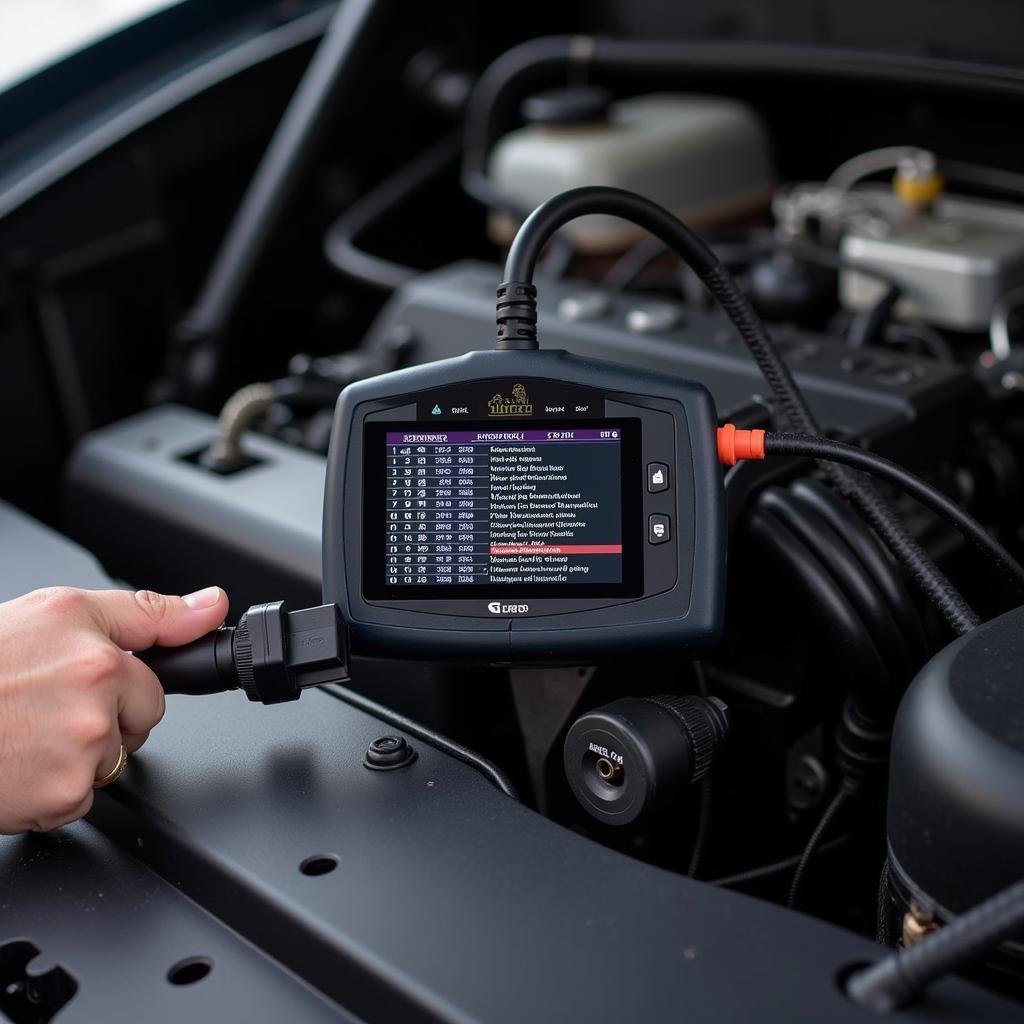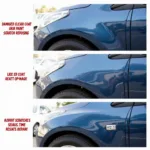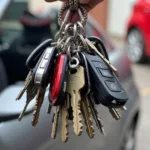Diagnostic tools for car and motorcycle are no longer a luxury but a necessity for effective repairs. As vehicles become increasingly complex, relying solely on traditional methods is insufficient. These sophisticated tools offer precise insights into the inner workings of your car or motorcycle, enabling faster and more accurate diagnoses. Understanding the range of available tools and their specific functions can significantly impact your repair experience, whether you’re a professional mechanic or a DIY enthusiast.
Understanding the Importance of Diagnostic Tools
Modern vehicles are intricate systems controlled by Electronic Control Units (ECUs). These ECUs manage everything from engine performance to safety features, generating vast amounts of data. Diagnostic tools provide the interface to access and interpret this data, pinpointing the root cause of issues quickly and efficiently. Imagine trying to find a single faulty wire in a complex electrical system – that’s where diagnostic tools come into play. They streamline the troubleshooting process, saving you time and potentially costly misdiagnoses. For example, a diagnostic tool can identify a faulty oxygen sensor in minutes, a task that could take hours using traditional methods.
Types of Diagnostic Tools for Car and Motorcycle
From basic code readers to advanced scan tools, the market offers a diverse range of diagnostic tools. Choosing the right tool depends on your needs and technical expertise.
- Code Readers: These entry-level tools retrieve Diagnostic Trouble Codes (DTCs) stored in the vehicle’s ECU. They’re affordable and user-friendly, suitable for DIYers seeking basic diagnostic information.
- OBD-II Scanners: More advanced than code readers, OBD-II scanners provide real-time data, allowing you to monitor various engine parameters. They also offer more detailed code descriptions and some bi-directional control capabilities.
- Professional Scan Tools: These high-end tools are designed for professional mechanics. They offer comprehensive functionalities, including advanced diagnostics, programming, and coding. These tools are essential for complex repairs and system calibrations.
- Motorcycle-Specific Tools: While many OBD-II scanners work with motorcycles, some manufacturers require specialized diagnostic tools. These tools are tailored to the specific communication protocols and systems of particular motorcycle brands.
Choosing the Right Diagnostic Tool
Selecting the appropriate diagnostic tool depends on several factors. Consider your budget, technical skills, and the type of vehicle you’re working on. Do you need basic code reading capabilities or advanced functionalities like programming and coding? Are you working on a domestic or foreign vehicle? Researching different models and reading reviews can help you make an informed decision. For professional mechanics, investing in a high-quality scan tool is a worthwhile investment, increasing efficiency and accuracy in their work.
How Diagnostic Tools Work
Diagnostic tools communicate with the vehicle’s ECU through the On-Board Diagnostics (OBD) port. This standardized port allows access to the vehicle’s diagnostic data. Once connected, the tool can retrieve DTCs, monitor live data streams, and perform various tests. This information is crucial for identifying the source of problems and ensuring accurate repairs.
What are Diagnostic Trouble Codes (DTCs)?
DTCs are standardized codes that represent specific malfunctions within the vehicle’s systems. These codes provide a starting point for troubleshooting, guiding mechanics toward the affected area.
How to interpret DTCs?
While retrieving DTCs is relatively straightforward, understanding their meaning requires further research. Online resources and repair manuals provide detailed explanations of each code, outlining potential causes and recommended repair procedures.
Conclusion
Diagnostic tools for car and motorcycle are invaluable assets in modern vehicle repair. They provide a window into the complex electronic systems, enabling accurate and efficient diagnoses. Whether you’re a seasoned mechanic or a car enthusiast, understanding and utilizing these tools is essential for maintaining and repairing your vehicle effectively. Choose the right diagnostic tool for your needs, and leverage its capabilities to troubleshoot problems, save time, and ensure optimal vehicle performance.
FAQ
- Are all diagnostic tools compatible with all vehicles? No, compatibility varies depending on the vehicle’s make, model, and year.
- Can I use a car diagnostic tool on a motorcycle? Sometimes, but some motorcycles require specific tools.
- What is the difference between a code reader and a scan tool? Scan tools offer more features, including live data and bi-directional control.
- How do I find the OBD port on my vehicle? It’s usually located under the dashboard on the driver’s side.
- Where can I find information about DTCs? Online resources and repair manuals provide detailed explanations.
- Do diagnostic tools require regular updates? Many professional tools require periodic updates to stay current with vehicle software changes.
- Can I program or code my car with a diagnostic tool? Some advanced scan tools offer programming and coding capabilities.
Do you need a car diagnostic machine for sale in South Africa? Check out our website for more information.
You might also be interested in our other articles on car maintenance and repair tips. For further assistance, contact our 24/7 customer support team via WhatsApp: +1(641)206-8880 or Email: [email protected].



